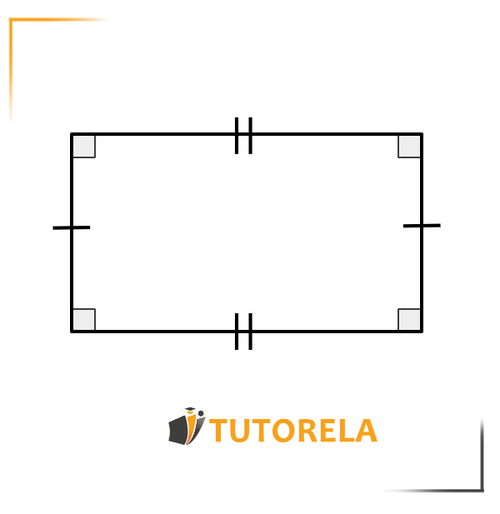A rectangle is a quadrilateral with two pairs of parallel opposite edges (sides), the angles of which all equal 90 degrees.

- The pairs of sides in a rectangle are opposite, equal, and parallel.
- Each of the angles in a rectangle are equal to 90 degrees.
- The diagonals of a rectangle are equal.
- The diagonals of a rectangle intersect and do so at the midpoint of each other.
- Since the diagonals are equal, so are their halves.
Note:
The diagonals of a rectangle are not perpendicular (they are oblique) and do not cross the angles of the rectangle.